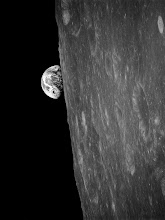"On an inner level, Dionysos, the Fool, is an image of the mysterious impulse within us to leap into the unknown. (19)"
"The Fool meets the Magician only after he has braved the precipice, for the visitations of the inner guide do not come when one hides safely within the maternal cave. (23)"
"Through this card [the Empress (Great Mother)] we enter the realm of the body and the instincts, as a place of both peace and stagnation, life-giving and life-suffocating. Thus the Fool, the child of heaven, discovers that he lives in a physical body and is a creature not only of spirit but also of earth. (26)"
On an inner level, Zeus, The Emperor, is an image of the experience of fathering. It is the father who embodies our spiritual ideals, our ethical codes, the self-sufficiency with which we survive in the world, the authority and ambition which drive us to achieve, and the discipline and foresight necessary to accomplish our goals. This masculine principle within both men and women differs from the nurturing and unconditional love of the mother whom we met in the card of the Empress. Here it is the spirit, not the body, which is accorded the highest value, and action, rather than intuitive flowing with nature, which is demanded of us (28).


The father within us also fosters self-respect, because it is this part of us which can take a standpoint from which to meet life's challenges. Zeus could be compassionate, and championed the weak and the dispossessed. But he could also be angry and vindictive if his authority was challenged and his laws broken. Thus Zeus, the Emperor, has a darker face, which is expressed on an inner level as rigidity and implacable self-righteousness. To be in relationship with the inner father means to possess a sense of of one's potency, one's capacity to initiate ideas and concretize them in the world (28-29).
". . . To be dominated by the inner father means to be enslaved by a set of beliefs which crush all human feeling with their inflexibility and arrogance. (29)"
Then, like Zeus himself, we must overthrow the old rule and inaugurate and newer and more creative one, lest we become petty tyrants ourselves or fall under the spell of a tyrant in the world outside. Having discovered the rich and fecund world of the body's needs and pleasures, the Fool must now find ethical principles by which to live; for without the Emperor, we are mere pawns in life, driven from within and without by blind instinct, blaming our problems and difficulties on other people and on society, because we cannot find the inner experience of strength which the father embodies (29).from:
by Juliet Sharman-Burke And Liz Greene
Fireside, New York, 1986


























No comments:
Post a Comment